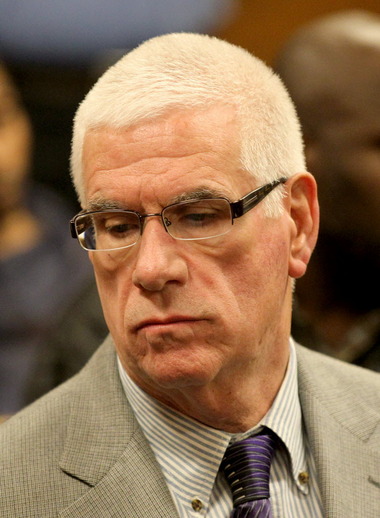Cuyahoga County Judge Clears Way for Cleveland Priest to Stand Trial on Solicitation Charges
By James F. McCarty
CLEVELAND, Ohio – A Cuyahoga County Common Pleas Court judge today ruled that the soliciting case against a Cleveland priest could go forward after rejecting defense challenges to the constitutionality of the law. The Rev. James McGonegal, 69, the former pastor of St. Ignatius of Antioch Church, is charged with soliciting sex from an undercover ranger at Edgewater Park last October. The charge is a felony because McGonegal is HIV positive, but failed to divulge this to his intended partner. Judge Stuart Friedman released a written opinion today in favor of the prosecution's position that the law used to charge the priest is valid, and that defense attorney Henry Hilow's request for dismissal was groundless. Friedman scheduled McGonegal's trial for Sept. 9. "We'll be ready to go to trial on the 9th," said Joe Frolik, a spokesman for the county prosecutor's office. Hilow said he had no intention of dropping his quest to have the case dismissed. "We're ready to proceed to trial, and will continue to pursue this issue at the trial court level," he said. Hilow had argued to the judge that the Ohio statute used to charge his client is outdated, noting that medical advancements in HIV treatment since the law was passed in 1996 put the likelihood of infecting a partner at less than 1 percent. Assistant County Prosecutor Ed Fadel said Hilow's arguments were based on "speculation and hypotheticals," and that the likelihood of transmission was not an element of the state law. Ohio is one of 34 states that have similar laws making solicitation by HIV-infected people a felony. Pretrial negotiations involved McGonegal's eligibility for an early intervention program under which he would plead guilty, then enter a rehabilitation program. After he successfully completed the program, the case would be dismissed and his record expunged, Frolik said.
|
.
Any original material on these pages is copyright © BishopAccountability.org 2004. Reproduce freely with attribution.
